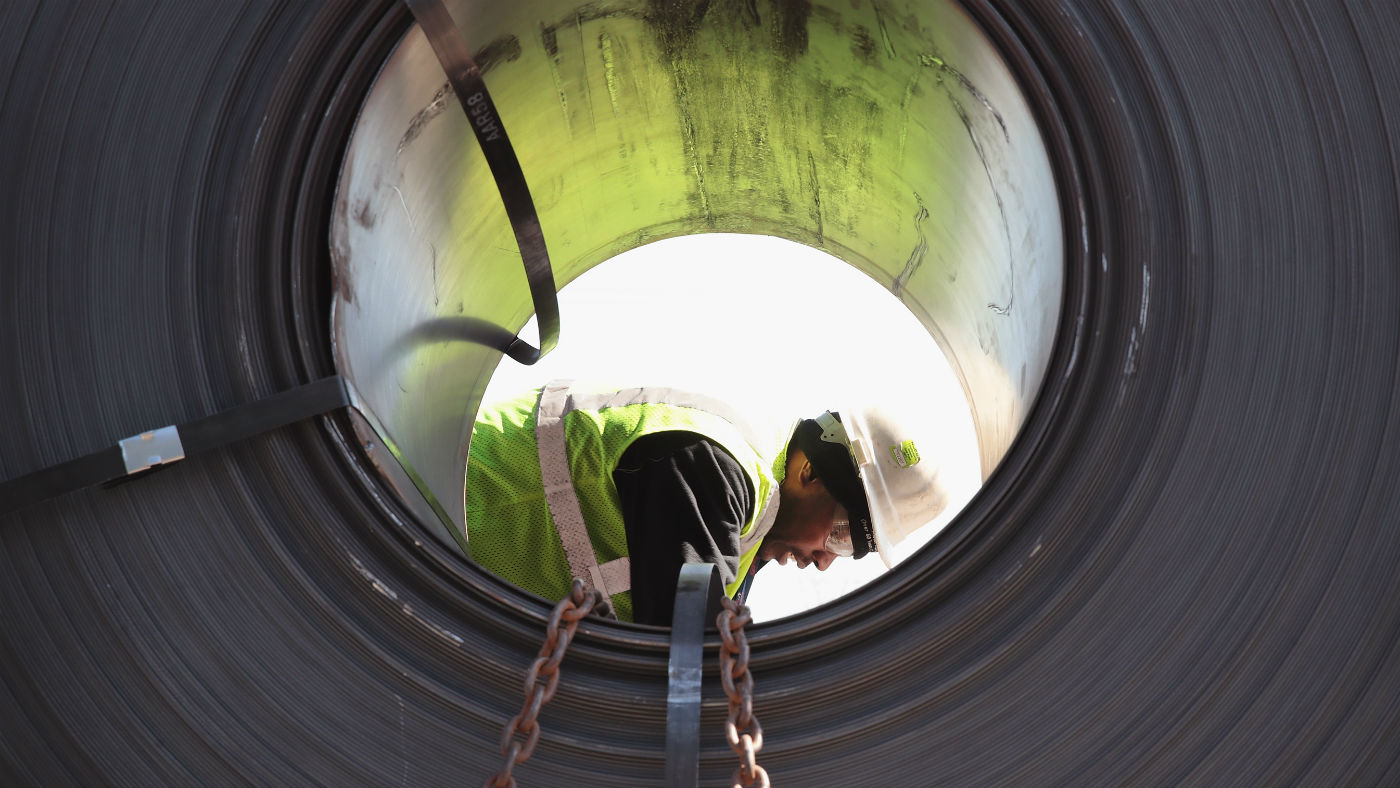Leading economists warn Donald Trump of ‘ruinous’ trade war
All those polled said tariffs would hurt far more Americans than they would help

A free daily email with the biggest news stories of the day – and the best features from TheWeek.com
You are now subscribed
Your newsletter sign-up was successful
The world’s leading economists have called on the US to pull back from a full-blown trade war, warning it could have ruinous consequences for the country and wider global economy.
Every one of the 43 economists polls in Chicago Booth University’s IGM Forum disagreed with the statement that increased tariffs on imports would “improve Americans’ welfare”.
They also agreed that proposed aluminium and steel tariffs of up to 25% would hurt far more Americans than they would help.
The Week
Escape your echo chamber. Get the facts behind the news, plus analysis from multiple perspectives.

Sign up for The Week's Free Newsletters
From our morning news briefing to a weekly Good News Newsletter, get the best of The Week delivered directly to your inbox.
From our morning news briefing to a weekly Good News Newsletter, get the best of The Week delivered directly to your inbox.
The measures have drawn a stinging response from the US’s major trading partners, namely China and the EU, which have threatened a series of tit-for-tat tariffs on iconic US brands such as Levi’s, bourbon whisky and Harley-Davidson motorcycles.
The Daily Telegraph says the decisive survey is “a sharp rebuke” to US President Donald Trump’s claim that “trade wars are good, and easy to win”.
Economists at ING have calculated that a 1% rise in the price of all imports into the US and into the EU would boost domestic production in the US by 0.07% and the EU by 0.1%, but hit the wider economy to the tune of 0.36% and 0.28% of GDP respectively. “As a result,” the Telegraph argues, “any benefit of the tax is more than outweighed by the damage inflicted.”
A separate survey of economists conducted by the Wall Street Journal last week found Trump’s proposed tariffs would lead to job losses, “as gains in the domestic steel and aluminium industries would be outweighed by losses in sectors that purchase those metals”, amid wider concern foreign-trade disputes could escalate and damage the US economy.
A free daily email with the biggest news stories of the day – and the best features from TheWeek.com
Several key pro-free trade Trump advisors, including his top economic advisor, Gary Cohn, have departed over the past few weeks, raising fears the White House could become even more protectionist.
-
 What to know before filing your own taxes for the first time
What to know before filing your own taxes for the first timethe explainer Tackle this financial milestone with confidence
-
 The biggest box office flops of the 21st century
The biggest box office flops of the 21st centuryin depth Unnecessary remakes and turgid, expensive CGI-fests highlight this list of these most notorious box-office losers
-
 The 10 most infamous abductions in modern history
The 10 most infamous abductions in modern historyin depth The taking of Savannah Guthrie’s mother, Nancy, is the latest in a long string of high-profile kidnappings
-
 Currencies: Why Trump wants a weak dollar
Currencies: Why Trump wants a weak dollarFeature The dollar has fallen 12% since Trump took office
-
 TikTok: New owners, same risks
TikTok: New owners, same risksFeature What are Larry Ellison’s plans for TikTok US?
-
 Trump wants a weaker dollar, but economists aren’t so sure
Trump wants a weaker dollar, but economists aren’t so sureTalking Points A weaker dollar can make imports more expensive but also boost gold
-
 Leadership: A conspicuous silence from CEOs
Leadership: A conspicuous silence from CEOsFeature CEOs were more vocal during Trump’s first term
-
 The end for central bank independence?
The end for central bank independence?The Explainer Trump’s war on the US Federal Reserve comes at a moment of global weakening in central bank authority
-
 Can Trump make single-family homes affordable by banning big investors?
Can Trump make single-family homes affordable by banning big investors?Talking Points Wall Street takes the blame
-
 How will China’s $1 trillion trade surplus change the world economy?
How will China’s $1 trillion trade surplus change the world economy?Today’s Big Question Europe may impose its own tariffs
-
 Phish food for thought: Ben & Jerry’s political turmoil
Phish food for thought: Ben & Jerry’s political turmoilIn the Spotlight War of words over brand activism threatens to ‘overshadow’ the big ice cream deal